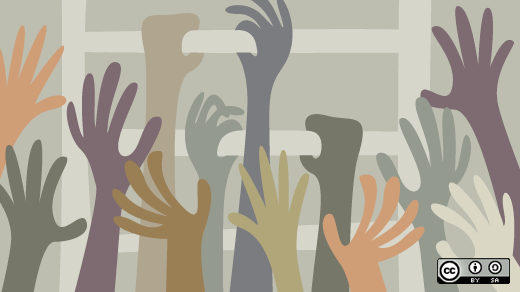RaiseMe proposes a new model for identifying and recognizing employee potential in unexpected places. It provides equal opportunity for all employees to candidly share ideas with decision-makers by transforming concepts of radical freedom into practices that incentivize employees, hacking the social architecture of traditional organizational hierarchies, and connecting previously unconnected stakeholders to maximize preexisting (re)sources.
This article was originally posted on the Management Innovation eXchange (MIX), an open innovation project aimed at reinventing management for the 21st century.
The problem
Despite the proliferation of incentive models that reward employee productivity, few are capable of simultaneously inspiring creativity, ingenuity, and innovation. Fewer still incorporate methods designed to flatten hierarchy and facilitate collaboration between those who generate ideas and those who implement them. Indeed, most fail to accomplish the stated goal of increasing profitability while also building a sense of community within the organization.
Regardless of resources or potential, such programs are doomed to fail because they rely upon the antiquated practices of Management 1.0 and its legacy commitments to bureaucracy. Under this model, a manager's purpose is to impose purpose from above and to extract productivity from below. Managers delegate, abdicate, assign, discipline, and streamline in ways that foreclose the possibility of fostering employee engagement. By treating employees as disposable resources instead of sources of insight, organizations are unable to capitalize upon the latent potential of their existing workforce. Thus, our hack proposes a new model for identifying and recognizing employee potential in unexpected places.
The solution
Ideas are the ultimate commodity, which propagate at zero marginal cost. —Chris Anderson
The hard question is therefore not whether a culture is free. All cultures are free to some degree. The hard question is “How free is this culture? How much, and how broadly, is the culture free for others to take and build upon? —Lawrence Lessig
The Victrola. Computer Punch Cards. Flashbulbs. Bureaucracy.
At first glance, it may appear as if one of these things is not like the others. And yet, that is precisely the problem. For most people, it is common sense to believe that most technologies of the modern era have a limited lifespan. Whether the catalyst is planned obsolescence or technological or social innovation, we are taught from an early age to embrace change.
More often than not, we accept change with open arms ... unless it involves the institutions and organizations that meet our needs for culture, compensation, or community. The exception to this rule, however, is deceptively simple: when we are actively involved in re/creating those institutions -- when we have a vote or a voice -- we build deeper connections and more meaningful connections with those institutions. In a word, we become invested. We become imbricated. We identify at a deeper level. We are transformed through our participation in the transformational process.
Our hack proposes a new approach to harnessing this transformative potential with a model that redefines traditional employee incentive programs that privilege performance. Modern bureaucracies, by their very nature, eliminate and reduce risk by stifling dissent and taming unruly ideas. This traditional approach to management suffocates the underlying potential genius embedded inside any organizational power structure. This is not to say that “every idea is a good one”: rather, it is simply an invitation to listen critically and without commitment. RaiseMe provides a method for discovering the potential of an untapped resource without negatively impacting profitability.
Instead, we offer a model that augments and complements existing incentive structures without disruption by providing an architecture for identifying potential: RaiseMe.
RaiseMe provides equal opportunity for all employees to candidly share ideas with decision-makers by creatively eliminating the space between the two. RaiseMe articulates the decentralization of crowdsourcing to the circuits of cultural capital within any organization by directly appealing to local knowledge. Doing so produces a ‘second harvest’ that amplifies the potential value of employees already on payroll, thus creating an internal marketplace of ideas. Implementation, however, demands a commitment to removing the filters and buffers -- the interference in the channel -- that separate most employees from the upper echelons of management.
RaiseMe takes the concept of radical freedom and transforms it into a practice that incentivizes employees instead of merely providing employee incentives. Instead of simply paying lip service to the probabilistic wisdom of crowdsourcing, RaiseMe strategically implements those fundamental principles of distributed intelligence that generate targeted partnerships across unequal positions within the management hierarchy. RaiseMe takes the drudgery out of managing by humanizing the hierarchy: it transforms management into the art of managing human beings.
Practical impact
RaiseMe hacks the social architecture of the traditional organizational hierarchy by connecting two previously unconnected stakeholders for the purpose of maximizing preexisting (re)sources. These connections catalyze cultural knowledge and create the conditions of possibility for eradicating red tape from the bureaucratic landscape.
RaiseMe provides an equal opportunity for all employees to be eligible to be nominated, regardless of rank. At intervals to be determined by available and allocatable resources, nominees are chosen and paired with an executive stakeholder. Although the duration and structure of each RaiseMe experience may vary, the foundational elements of each experience must provide a structured opportunity for the mutual exchange of local and executive knowledges. Due to its inherent flexibility, RaiseMe can be scaled to meet the specifications and constraints of any legacy or transitional organizational structure.
Thus, RaiseMe provides a deliberate structure for cultivating and embedding the ethos of community and citizenship within an internal market for ideas, talents, and resources while providing a legitimate space for dissent. It answers the deceptively simple question, “How can an increase in productivity occur without sacrificing the necessary elements of human ingenuity?”
RaiseMe offers a feasible alternative to the standardization, specialization, hierarchy, conformance, and authoritative control that define the modern bureaucratic organization. When organizations consistently fail to increase productivity and stimulate ingenuity, a transition in managerial thought is necessary. Thus, this hack demonstrates that it is useless to assume that a new structure can (or should) simply replace an existing one. Instead, we propose a targeted opportunity capable of capitalizing upon the probabilistic ideation of an organization’s resources.
Here, employees are no longer constrained by their positionality within the social architecture of the organization. Moreover, this model eliminates the influence of taskmasters who stymie creative brilliance. The problem, therefore, is not the existence or failure of management but the definitional limitations of the managerial role within Management 1.0.
Challenges
Like most innovative solutions to complex problems, the major strengths of this hack are also its weaknesses. Its successes and failures will be determined in each organizational context and measured by the degree to which each organization is willing and/or able to reject bureaucracy, engage in dialogue with its stakeholders, and leverage local knowledge against executive knowledge in a mutual quest to create a community of passion.
First steps
RaiseMe is similar to the “Chancellor for a Day” program offered by many colleges and universities in the United States. Students compete to win the opportunity to spend a day shadowing the academic equivalent of a CEO. After a full day of observation, candid conversation, and mentoring, the student returns to his or her normal patterns of daily campus life with a new source of social currency. Moreover, the Chancellor returns to his or her role with a deeper understanding and awareness of student life. This arrangement is mutually beneficial because it facilitates communication and shared experiences between two individuals who are interdependent (yet unequally positioned) members of the same community or organization. It generates social capital, provides a legitimate channel for criticism, and fosters a deeper connection. A simple way to pilot RaiseMe would involve matching an employee and the CEO for a test engagement -- lunch, coffee, or a half-day session -- and incorporating the methodological tools of participant observation and qualitative analysis to assess its short and long-term results.
Credits:
Anderson, Chris. Free: The Future of a Radical Price. New York: Hyperion, 2009.
Lessig, Lawrence. Free Culture: The Nature and Future of Creativity. New York: Penguin, 2004
https://www.managementexchange.com Passim. November and December 2011.







1 Comment